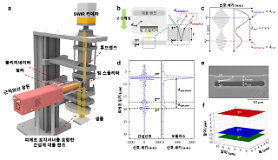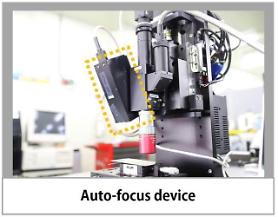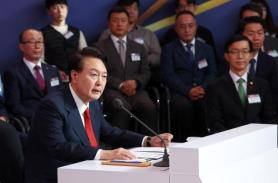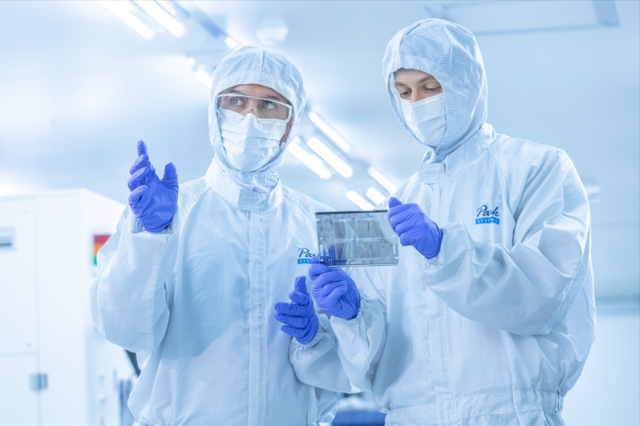
SEOUL -- Ultra-precision microscope developer Park Systems hopes for South Korea to create an infrastructure where talented scientists can receive support for creating novel technologies. The company, specializing in devices capable of measuring and detecting in nanometer levels, has secured the top position in the global market for atomic force microscopy, overtaking competitors like United States-based Bruker and Oxford Instruments based in Britain.
The atomic force microscope (AFM) is designed for precise measurements of objects at the nanometer scale, equivalent to one billionth of a meter. Without direct contact, Park Systems' AFM operates by bringing a probe into close proximity to the sample surface. Using atomic force interactions, the advanced microscope captures three-dimensional information including the height, angle, and roughness of the material surface. Because AFM can observe structures, including human DNA, without causing damage, they are utilized in various sectors such as the semiconductor, bio-pharmaceutics, and display industries.
Park System's non-destructive measurement plays a vital role in observing patterns of photoresist, a crucial semiconductor material. Precisely formed photoresist patterns contribute to the efficient transmission of electrical signals and improve the interaction between chip components. The non-destructive method is particularly favored by chipmakers aiming to incorporate extreme ultraviolet (EUV) machinery, which allows the production of smaller and more powerful semiconductor chips. The ability to maintain precise photoresist patterns becomes even more important for EUV technology as it enables the production of chips with higher transistor density.
Market research firm Strategic Market Research's data showed that the global AFM market is projected to increase to $782.8 million by 2030 from $488.9 million in 2021. Park Systems' global market share of AFM reached 20.3 percent in 2023, surpassing Bruker which had 18.8 percent. According to the South Korean firm, its clients include prominent semiconductor companies including Samsung, and SK hynix, the world's second-largest memory chip producer.
"We acknowledge AFM as a platform technology because it can differentiate into various metrological equipment with unique measurement functions," Park System's executive vice president Cho Sang-Joon told Aju Korea Daily on January 5. While conventional microscopy is mainly used for observing the shape of the target object, Park Systems' AFM can visualize physical features, the amount of electrical current that flows through a semiconductor circuit.
Although Park Systems has achieved a reputation as the world's top ultra-precision metrological equipment platform maker, the process the company had to go through was not easy. "As a small and medium-sized company, it was extremely difficult to recruit talented researchers in South Korea," Dr. Cho said.
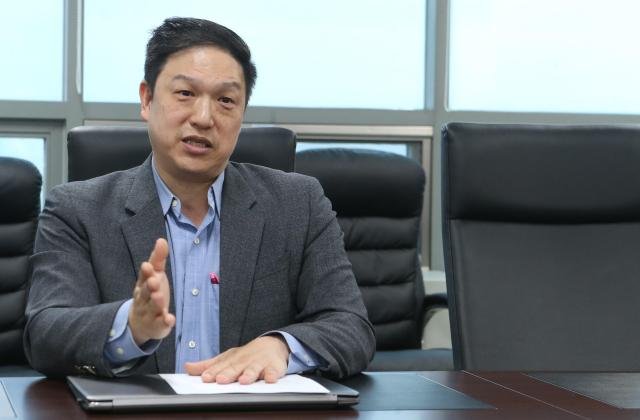
Since its establishment in 1997, Park Systems has hired many scientists through South Korea's alternative military service system. This system allows South Korean men obligated for compulsory military service to contribute to national interests by working for research institutions or companies. In South Korea, all able-bodied males who are 18 and older must fulfill their military service for at least 18 months unless they have a valid reason for exemption.
"Quite a lot of researchers remained at our company even after completing their alternative military service," Cho said, adding that the service greatly helped the company to secure qualified experts. He formed networks with those who have left Park Systems after fulfilling their service. "Several employees requested recommendation letters for doctoral degrees at prestigious institutes such as the California Institute of Technology, and Standford University. Some of them later became professors."
This success in attracting top talent helped the South Korean company gain recognition at home and in foreign countries. In 2022, Park Systems secured orders worth more than 130 billion won ($95 million). The AFM developer is currently working with research institutes including Harvard, and the California Institute of Technology. The company also has regional headquarters in Santa Clara, California, Mannheim, Paris, Beijing, Tokyo, Singapore, India, and Mexico City. By 2027, Park Systems will build a factory in SK hynix's cluster in Yongin south of Seoul to support its semiconductor business.
The microscope developer also received a proposal for AFM introduction from IMEC, the world's largest semiconductor consortium in Belgium. "IMEC is our major partner, and we were selected for joint development projects on providing metrological solutions for developing a next-generation semiconductor chip," Cho said. This recognition led to inquiries from major semiconductor companies, ultimately resulting in Park Systems being cited as the most promising semiconductor technology solution provider of 2018 by technology magazine CIO Review. Park Systems was also selected as the "KOSDAQ Rising Star" for six consecutive years since 2018. KOSDAQ is the South Korean equivalent of the U.S. NASDAQ stock market.
During the interview, Cho highlighted the role of research and development infrastructure in accelerating the growth of high-technology venture companies. He pointed out that many promising South Korean companies operate as subsidiaries of conglomerates, primarily benefiting these established entities. "Even if outstanding technologies are designed, realizing them in South Korea is challenging because the most technologically advanced groups are subsidiaries of conglomerates or support them instead of being a part of the infrastructure."
"It is crucial to nurture small-sized companies with exceptional technology," the executive vice president said. To create a fertile ecosystem for small technology companies, he consistently emphasizes the importance of such endeavors to government officials and people in the Korea R&D Industry Association. This organization aims to enhance cooperation between researchers and entrepreneurs to support infrastructure for developing the research and development sector.
"Because we also have overcome various challenges, we now hope to contribute to the growth of the scientific instrument industry as a whole," Cho stated. The entrepreneur thinks assisting small-sized fellow tech firms will benefit his nation, ultimately contributing to South Korea's advancement.
Copyright ⓒ Aju Press All rights reserved.


